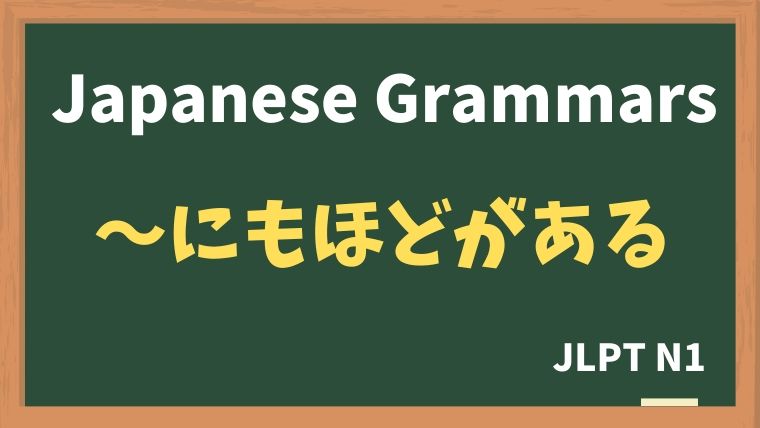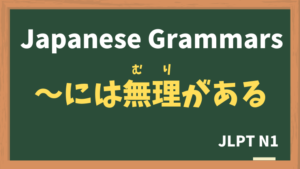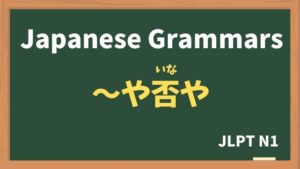
Explanation:〜にもほどがある
fa-check-circleMeaning
"〜にも限度がある / 〜しすぎだ”
"there is also a limit to 〜"
Used to criticize or point out that something has gone too far or has exceeded acceptable limits. It conveys the idea that while some degree of a certain behavior or situation might be acceptable, there is a limit ("ほど") to how far it should go, and this limit has been surpassed. It often expresses disapproval, frustration, or warning.
fa-check-circleForm
V(dictionary form / nai form) + にもほどがある
イAい + にもほどがある
ナA + にもほどがある
N + にもほどがある
fa-check-circlePoints
- Exceeded Limits: It emphasizes that a certain action, situation, or behavior has exceeded what is reasonable or acceptable.
- Disapproval: The expression is typically used in contexts of criticism or frustration, signaling that the subject has gone beyond what is tolerable.
- Strong Negative Tone: It has a strong tone and is often used to criticize extreme actions, words, or attitudes.
fa-check-circleJLPT Level
N1
Sample sentenes
トムさん、お酒の飲み過ぎにもほどがあるよ。そろそろやめておいた方がいいんじゃない。
Tom, there's a limit to how much you can drink. You should probably stop soon.
部屋が汚いにもほどがあるよ!ちゃんと掃除しなさい。
The room is ridiculously dirty! You need to clean it properly.
彼の態度は失礼にもほどがある。
His attitude is beyond rude.
冗談にもほどがあるよ。これはちょっと許せない。
There's a limit to jokes. This one is a bit unforgivable.
途中で仕事を投げ出すなんて、無責任にもほどがあるぞ。
To quit a job midway is beyond irresponsible.
Vocabulary
| Japanese |
English | |
| 態度 | たいど | attitude |
| (仕事を)投げ出す | (しごとを)なげだす | to throw up one's job |
| 無責任 | むせきにん | Irresponsible |






